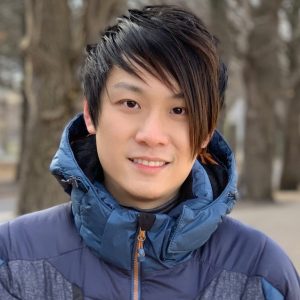While venturing into the world of aquaculture might seem like taking a leap of faith into the unknown to most people, it was a homecoming for Mr Malcolm Ong.
Having grown up just two minutes away from the beach, it is no wonder Mr Ong, 58, has such a deep love for the open sea. He did not let his professional achievement as the Managing Director of a French software firm stop him from returning to his first love and pursuing his dreams as a fish farmer.
Mr Ong had initially wanted to buy a boat for leisure, but he decided to shelve the plan after meeting traditional fish farmers and becoming one of them instead.
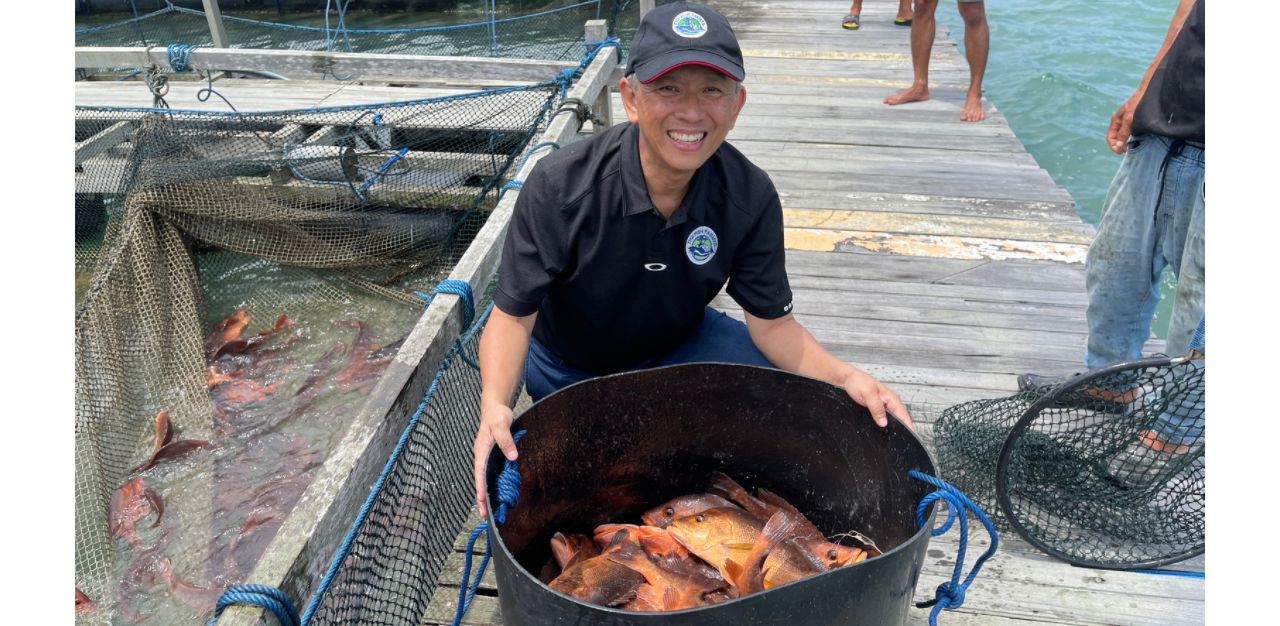
The Fish Farmer was “born” in 2007 with the aim of feeding Singapore in a natural, sustainable way. Mr Ong says the fishes at his farms are nurtured without any growth enhancements. Even the farms are constructed using recycled materials.
With his background in IT, Mr Ong also incorporates technology into his traditional farms to improve their productivity. His water monitoring systems are “solar-powered and designed for a low energy footprint, while still allowing us to tap on the power of cloud computing”, Mr Ong says.
Today, his four farms, located off the waters of Lim Chu Kang and Changi, are capable of producing 1,000 tonnes of fish annually. They include species like the grey mullet, milk fish, red snapper, barramundi, and sea perch.
TheHomeGround Asia drops in on Mr Ong at his farm to learn more about aquaculture and how he feeds Singaporeans, one fish at a time.

TheHomeGround Asia (THG): How did your love for the sea drive you into the aquaculture industry?
Malcolm Ong (MO): When I was a young boy, we used to stay next to the sea, literally two minutes away. There was a gate, and we would open it, and I’m out there playing on the beach.
Later, we literally started to see the land being reclaimed. That was in the 1970s, I think, and suddenly the sea was 30 minutes away, instead of just two minutes.
But I’ve always loved the sea and I still do. So when I became older, I rented a boat, and took my family out. That was when I made up my mind to buy my own boat. With a boat, you can’t use it all 365 days. At the most, you can use it during the weekend, and mind you, not every weekend.
That was when people started talking to me about farming. They shared their life experiences and how disappointed they were when the younger generation were not interested in taking over.
I’m an old person, but I’m considered young in the fish farming industry. Many of the people in this business are much older than me and still very passionate. That was when I started to think about farming as a way of solving some of the environmental problems and ended up getting the farm but not the boat.
THG: You were in technology. So how did you actually marry fish farming and technology to make your fish farm different from the traditional ones?
MO: I graduated from engineering in 1988. At that time, engineering was a big thing and farming was for the peasants. Nobody thought of farming but after nearly 30 years of being an engineer, I decided I wanted to have a change. That was when I decided on fish farming.
One of my software engineering staff from China couldn’t wrap his head around it. He told me I was really weird. He was a farmer in his country and came to Singapore to become an engineer. Here I was an engineer who quit to become a farmer.
While it’s nice being in an office environment, being out in the open is much more fun. I enjoy nature and being out here. There is a certain sense of fulfilment. So that’s how and why I decided to change my career after nearly 30 years.
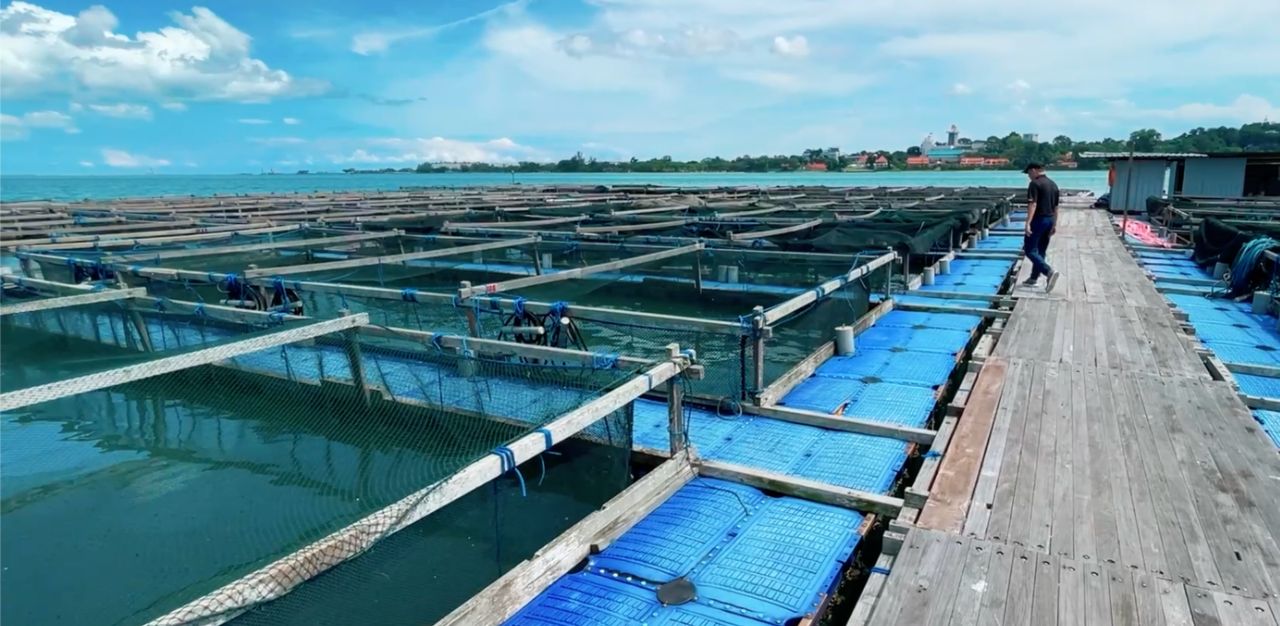
THG: Farming in this day and age has its challenges, especially now with the Covid-19 pandemic. How do you manage the challenges in areas such as manpower, lack of market and even a disrupted supply chain?
MO: It was already pretty challenging before Covid-19, because nobody really knows the difference between local fish and imported fish. So it was really challenging. We had to convince people that fish grown locally taste just as good if not better than imported ones.
We started creating businesses with the supermarkets, restaurants and even with the airlines. In fact the restaurants and airline businesses were climbing up very nicely.
And then Covid hit. Immediately, more than 50 per cent of my business was wiped out because the airlines didn’t fly, and the restaurant businesses were hit. I was left with only the supermarkets, and thankfully we were able to survive.
The pandemic also forced us to look elsewhere. We did home delivery and even went online because before that, we weren’t even considering online business.
So we had to learn how to go online. We listed on Redmart, Amazon, Fairprice online, Shopee, and other platforms to sell more to make up for the loss in revenue from the restaurants and airlines. That was one big challenge.
Now when things are looking up because situations are more stable, and I thought I could relax, we were hit by another wave of challenges – that of sea freight. There is a disruption to the supply chains and it affects our imports like feed and equipment. These delays increase costs, particularly the cost of transportation. We are also affected by the increase of costs of electricity because that affects our cooling, our ice.
Then, there is the constant challenge of manpower. It’s tough to find workers to come out here and pull the net and all that. I hate to say this, but Singaporeans are soft when it comes to hard work. We need strong people to come out here to work. So it is hard to find locals who are willing to do so.
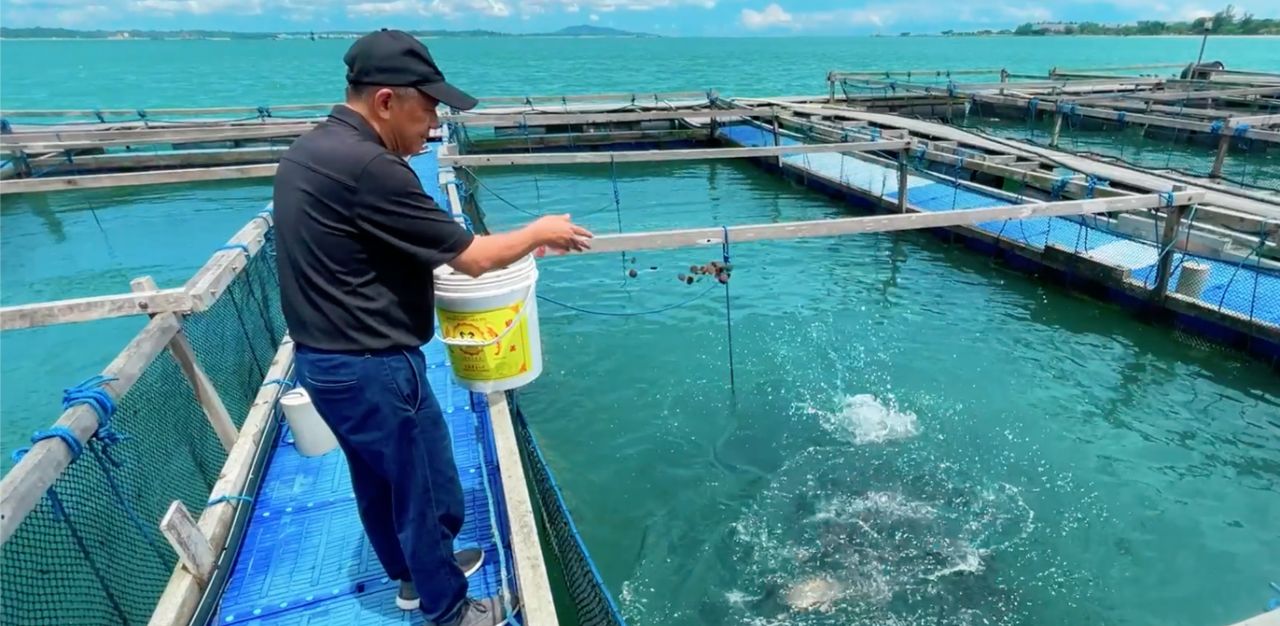
THG: Are there any interesting stories on how you overcome some of the challenges you face?
MO: This is a funny story. One of the things I used to do was to give my friends whole fish. And the more fish I give away, the less friends I have. You see, they don’t know what to do with the fish. That was when I discovered that maybe we should go into value-add. Today, we produce soups, mala flavoured and teriyaki flavoured fish fillets. We are also producing ready-to-cook, ready-to-eat items to make it convenient. It gives us the opportunity to address a new market and the opportunity to do value-added products.
That is when my friends return. It is so easy with the new products. You just take the fillet and put it in hot water. Eight minutes later, you cut open the bag, pour it out, and it’s ready to eat!
THG: Often, people just eat the fillet part of the fish. The rest of the fish gets thrown away and that is a lot of wastage. So, how do you deal with the wastage?
MO: Generally, young customers prefer to eat only the meat part of the fish, the fillet. But the sweetest part of the fish is actually the head and the cheeks. The meat only makes up 40 per cent of the fish, while the head, the bone, the tail make up the remaining 60 per cent.
But because of customer preferences, we had to throw away 60 per cent of the fish when we started doing value added products.
So comes the new challenge of what to do with the rest of the fish. We explored soups as an option, and we created some soups. We also looked at recipes such as fish head curry and other items that can make use of these parts of the fish.
It’s not just only the value added, but also the valorising or the use of the parts that are wasted, which are actually good to eat.
That’s one of the challenges that I am thankful we have addressed. We still continue to face challenges, but things are looking pretty bright.
THG: Where do you see The Fish Farmer and the fish farming industry heading in the future?
MO: The Fish Farmer would like to expand, but we’re realistic at the same time. We want to expand as an industry, not as an individual farm, because I can’t do everything alone.
So, we are working in collaboration with SFA (Singapore Food Agency) and other farmers to try to break up the processes so that each of us specialise in one part and because we specialise in what we do, we can do better, more efficiently.
Then together as an industry, we can grow much bigger.
THG: How do you hope to inspire more young people to join this agriculture?
MO: Aquaculture is very interesting. It deals with lives – the life of the fish and other living things.
It’s not so simple as “a” plus “b” equals “c”. There’s a lot of details that go into it – to make the fish happy and when the fish are happy, they grow well and naturally they taste good.
It’s a lot of hard work. It’s out in the sun and you’ve got to pay a lot of attention to the fish. Sometimes there are things that you have to do at night or on weekends.
But if I could just share my life with other people, I could perhaps encourage them to come and join us in the field of fish farming. It’s very fulfilling and it’s fun. There is never a dull day.
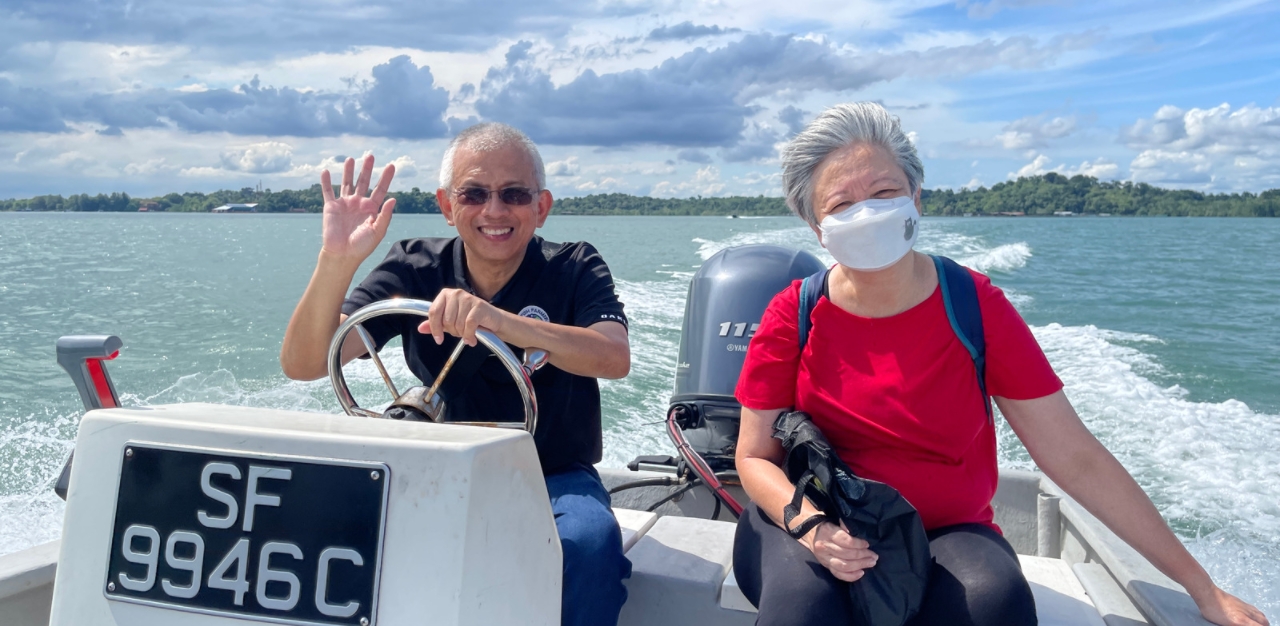
To eat fresh and support local, log into The Fish Farmer here.
Join the conversations on TheHomeGround Asia’s Facebook and Instagram, and get the latest updates via Telegram.
